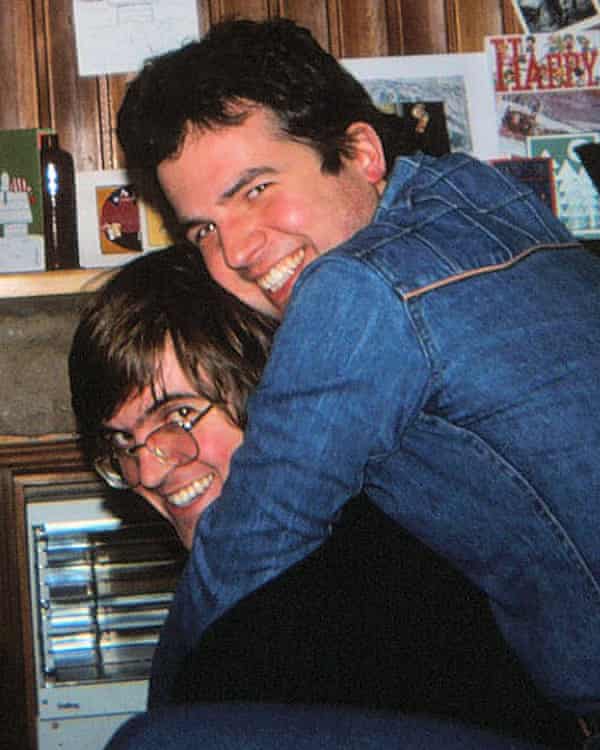Mark was deeply unhappy when he started at St Andrews University in Scotland in 1967. He had grown up feeling conflicted about his sexuality, and though sex between two men had been decriminalised in England and Wales that summer, it remained illegal in the rest of the UK, and attitudes towards gay people remained extremely hostile. “Sex education taught me that my feelings were abnormal. I was waiting for the phase to end,” he says. In his first week, he met Andrew, who had moved from the US to study. “We didn’t know each other well. He was on the fringes of my social group,” says Mark, 71. Andrew found Mark attractive, but had never considered a relationship with another man. “I’d been in a fraternity and had girlfriends. Being gay hadn’t really crossed my mind,” he says.
After completing his degree, Mark moved to London in 1972 and found work in the film industry. “I realised my sexuality was nothing to be ashamed of and told all my friends,” he says. Andrew, 73, spent a year in Virginia after his studies, before moving to Edinburgh to complete a PhD. By the early 70s, he too had begun to explore his sexuality, and was secretary of the Edinburgh University GaySoc. “Some friends told me that Mark had come out. They said: ‘He’s done just about everything bar putting out a personal ad to tell everyone he’s queer.’” In the autumn of 1974, he called Mark. “I was going for dinner with a mutual friend of ours, so I invited him to come along,” says Mark. “I spotted Andrew on Shaftesbury Avenue and he looked totally different. He’d shaved off the Gilbert and Sullivan sideburns he’d had at university.”

Afterwards, Mark suggested they all meet again, this time for dinner at his flat. “I’d told him I was gay, but as he put the dinner date in the diary I noticed he was going to an event held by the Campaign for Homosexual Equality, [one of the first campaigning organisations for gay rights,] and I realised he was too.” Andrew felt a spark that night. “He was cute and funny. I just wanted to put my arms around him.”
When they had dinner at Mark’s flat, their friend suggested they get together. “We kissed when she went to the toilet,” says Andrew. “We took her to Greenwich station after the meal and went straight back to Mark’s flat together.” In December, Mark joined Andrew at a gay rights congress in Edinburgh. They continued their relationship, visiting each other regularly in London and Scotland. In the mid-70s, a man called David joined their relationship, and they lived together as a threesome for four years. “You did that kind of thing in the 70s,” laughs Andrew. By 1980, they had moved to a house in south London, and Mark and Andrew were ready to live as a couple. David moved out, but they remained close friends.
Mark developed a career in cabaret and performance, while Andrew worked in health education. “While I was at the Royal College of Nursing in 1982 I became aware of a new disease that was affecting gay men,” he says. “I was able to access a lot of information about it.” Over the next decade the couple lost many of their friends to Aids, including David, who died in 1990. “We went to a lot of funerals and memorial services,” remembers Andrew. After David’s death, there was a high court battle to ensure his wishes for a non-religious funeral were respected. This experience inspired Mark to become a magistrate, a role he started in 1995.
In 2003, Andrew became a British citizen and they had a civil partnership three years later. “He’s always been wonderfully supportive of me,” says Mark. “I can’t imagine being with anyone else.” For Andrew, Mark is the glue that binds everything together. “Asking what I love about him is a bit like asking what I love about life. The answer is all of it.”
from Lifestyle | The Guardian https://ift.tt/3vYIoZj
via IFTTT

comment 0 Comment
more_vert